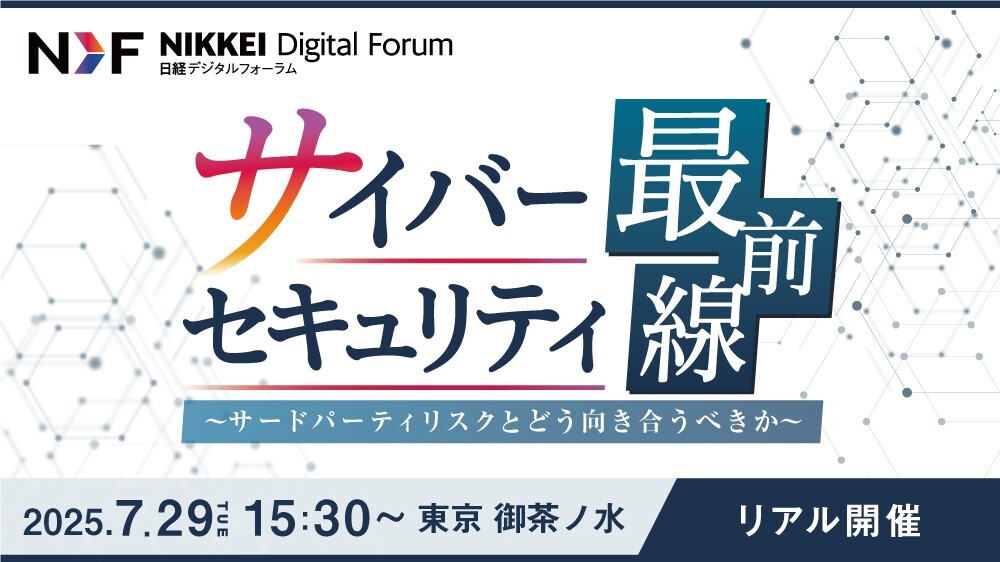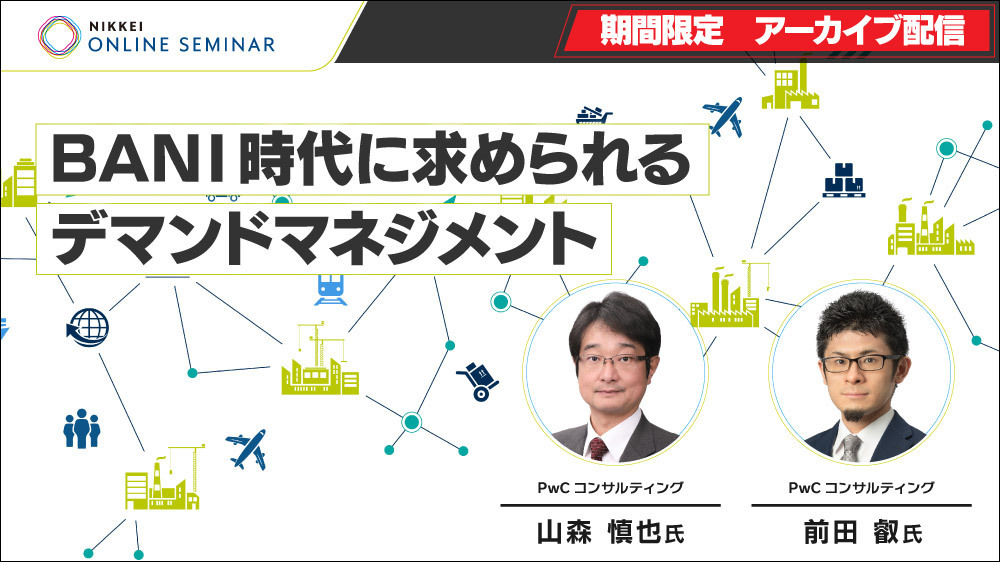- HOME
- Shared Values and Democracy in Asia Symposium
キーワード
Shared Values and Democracy in Asia Symposium
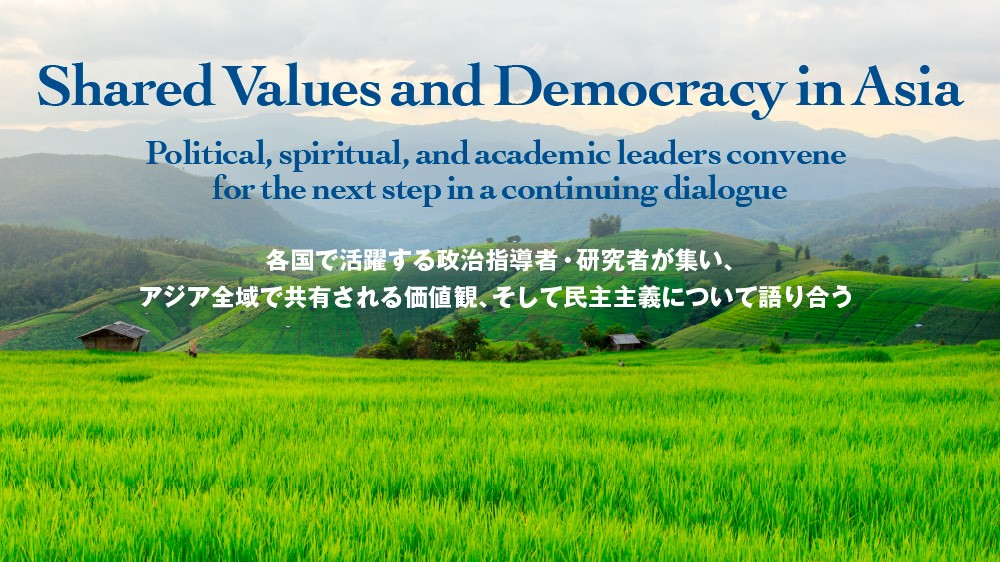
At a time when many Asian countries are embracing democracy, what are the factors behind the growth and development of democracy in this region?
Asia is home to many diverse ideologies and religions, all of which are firmly embedded in their respective regions. In a society of such rich diversity, what are shared universal, fundamental ideologies and values that transcend existing frameworks?
At this symposium, political leaders and researchers from the Asian region will conduct multi-faceted discussions on themes such as the democratization experiences of their own countries and regions, the values that underpin democracy, and the universal nature of those values.
概要OVERVIEW
- Date
- 2020/12/21(Mon) 13:00 - 17:30 JST
- Venue
Nikkei Hall
1-3-7 Otemachi, Chiyoda-ku, Tokyo, 100-0004. Japan
- Organized by
Nikkei Inc.
- Co-organizer
Vivekananda International Foundation(VIF)
- In association with
The Japan Foundation
- Supported by
Ministry of Foreign Affairs of Japan
The Japan-India Association
- How to watch
You can choose to watch this event remotely or onsite. * Pre-registration required.
- Registration due date
To watch livestreaming * Application deadline: Dec. 16
The URL for the livestreaming will be sent via email by the day before the Symposium (Dec. 21).
※Please check your internet connection 10 mins before livestreaming.To attend onsite * Application deadline: Dec. 14
A lottery may be held if there are more than capacities. The result will be announced in a message to the registered email address. We will inform you of the URL for the livestreaming if you do not win an onsite ticket.
- Language
Simultaneous interpretations in English and Japanese
- Inquiry
"Shared Values and Democracy in Asia Symposium" Secretariat
asianvalue@nex.nikkei.co.jp
プログラムPROGRAM
13:00~13:30 Opening Ceremony / Keynote Speech
Others
13:35~14:45 PANEL SESSION 1: Religion, Living Together in Harmony, and Freedom of Religious Belief in Asia
Hiroshi Yamashita Professor Emeritus, Tohoku University
Bilahari Kausikan Chairman, Middle East Institute, National University of Singapore
Mussolini Sinsuat Lidasan Executive Director of the Al Qalam Institute of Islamic Identities and Dialogue in Southeast Asia based at Ateneo de Davao University
Azyumardi Azra Former Director of Graduate School, Syarif Hidayatullah State Islamic University, Jakarta, Indonesia
Shashi Prabha Kumar Dean at Sri Sankaracarya Sanskrit Mahavidyalaya, Bharatiya Vidya Bhavan, New Delhi
Fujita Kokan Former President of Koyasan University
Imtiyaz Yusuf Associate Professor at The International Institute of Islamic Thought and Civilization, Malaysia
15:00~15:40 SPECIAL REPORT: Values and Tolerance in Olympic and Paralympic Games
Junichi Kawai Chairman of the Japanese Paralympic Committee
Sarah Walker Chair of the Athletes' rights and responsibilities Declaration
15:50~16:50 PANEL SESSION 2: Democracy in Diversity – 150th birth anniversary of Mahatma Gandhi
Tsuneo Watanabe Senior Researcher, The Sasakawa Peace Foundation, Japan
Arvind Gupta Director of Vivekananda International Foundation
Jade Donavanik
Baabar Columnist
Ketty W. Chen Vice President, Taiwan Foundation for Democracy
Philips J. Vermonte CSIS Executive Director
17:00~17:30 Closing session
登壇者SPEAKERS
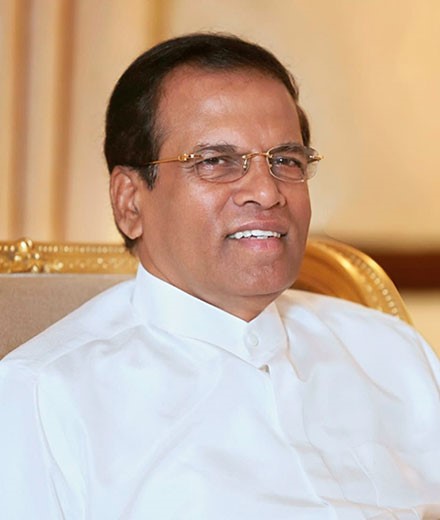
Maithripala Sirisena
Former President of Sri Lanka
He started his political career as a grassroot youth cadre and became a Member of Parliament in 1989.
He rose in rank as Deputy Minister of Mahaveli Development and later held the portfolios of Agriculture, Mahaweli, Environment, Irrigation, Health and acted as Minister of Defence too.
In 2015 he contested the Presidency as the Common Candidate and was elected.
Maithripala Sirisena’s election to the Presidency was based mainly on democratization and depoliticization.
Currently, he serves as a Member of Parliament.
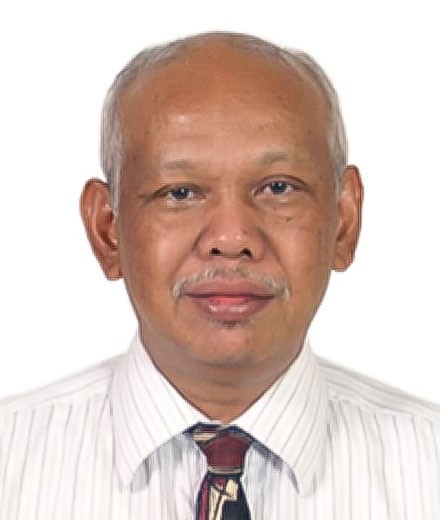
Azyumardi Azra
Former Director of Graduate School, Syarif Hidayatullah State Islamic University, Jakarta, Indonesia
AZYUMARDI AZRA, CBE, born on March 4, 1955, is Professor of history & culture; and Special Staff to Vice-President Jusuf Kalla (January 2017-October 2019). He was Director of Graduate School, Syarif Hidayatullah State Islamic University, Jakarta, Indonesia (January 2007-March 2015); and was also Deputy for Social Welfare at the Office of Vice-President of the Republic of Indonesia (April 2007-October 20, 2009).
He was also rector of Syarif Hidayatullah State Islamic University for two terms (1998-2002 and 2002-2006). He earned his MA in Middle Eastern Studies, MPhil and PhD degrees in history all from Columbia University in the City of New York (1992) with the dissertation “The Transmission of Islamic Reformism to Indonesia: Networks of Middle Eastern and Malay-Indonesian `Ulama’ in the 17th and 18th Centuries”. In May 2005 he was awarded Doctoral Degree Honoris Causa in Humane Letters from Carroll College, Montana, USA.
He was fellow at Oxford Centre for Islamic Studies (OXCIS, 1994-5); a Honorary Professorial Fellow, University of Melbourne, Australia (2004-9); He has been involved as a member of selection committees for research awards. He has been international visiting fellow at the Azhar University, Cairo; Leiden University; Oxford University; University of Philippines; New York University; Columbia University; University of Melbourne, and many others. He regularly presented papers on various subjects at national and international conferences. He has published 44 books; numerous chapters in internationally edited books.
Shashi Prabha Kumar
Dean at Sri Sankaracarya Sanskrit Mahavidyalaya, Bharatiya Vidya Bhavan, New Delhi
Prof. Shashi Prabha Kumar is currently the Dean at Sri Sankaracarya Sanskrit Mahavidyalaya, Bharatiya Vidya Bhavan, New Delhi. Earlier she was the first Vice-Chancellor of Sanchi University of Buddhist-Indic Studies, Raisen, Madhya Pradesh (2014-2016) and Chairperson of Special Centre for Sanskrit Studies at Jawaharlal Nehru University, New Delhi (2001- 2007). Recipient of several awards including the President’s Certificate of Honour in Sanskrit (2014), and an Honorary D.Litt. (2016) from Uttarakhand Sanskrit University, Haridwar. Prof. Kumar has participated in several national and international conferences in India and abroad. In the last 47 years of her teaching career, Prof. Kumar has taught various aspects of Sanskrit Studies in general and Indian Philosophy in particular. She has been a Visiting Faculty at the Oxford Centre for Hindu Studies in Trinity Term, 2007. She has supervised more than 50 students for M.Phil., Ph.D. and Post-Doctoral research. Her field of specialisation is the Vaisesika system of Indian philosophy, and areas of interest are Vedas, Upanisads, Bhagavadgita and other source books of Indian culture. She has 35 books and more than 150 research papers to her credit. Her major publications are Categories, Creation and Cognition in Vaisesika Philosophy, published by Springer Nature (Singapore, 2019), Vedavicaravithih (Delhi, 2018), Drops of Vedic Nectar (Delhi, 2016), Sanskrit Studies III (Delhi, 2014), Classical Vaisesika in Indian Philosophy (Oxford, 2013), Sanskrit Across Cultures (Delhi, 2007), Sanskrit and Other Indian Languages (Delhi, 2007), Veda as Word (Delhi, 2006), Self, Society and Value (Delhi, 2005), and Facets of Indian Philosophical Thought (Delhi, 1999).
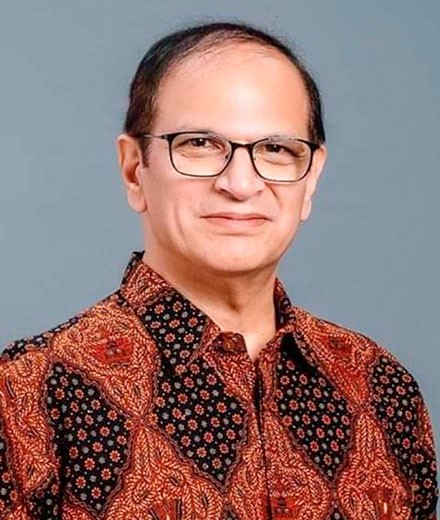
Imtiyaz Yusuf
Associate Professor at The International Institute of Islamic Thought and Civilization, Malaysia
Dr. Imtiyaz Yusuf is Associate Professor and Deputy Dean for Students Development and Community Engagement and also Coordinator, Islam and Buddhism Program at The International Institute of Islamic Thought and Civilization, Malaysia.
Dr. Yusuf was formerly Senior Fellow at the Alwaleed Center for Muslim-Christian Understanding, (ACMCU) Georgetown University, Washington D.C., USA. He is also the former Director of the Center for Buddhist-Muslim Understanding in the College of Religious Studies at Mahidol University in Thailand.
He specializes in Religion with a focus on Islam in Thailand and Southeast Asia and also Muslim-Buddhist dialogue. Dr. Yusuf has contributed to the Oxford Encyclopedia of Islamic World (2009); Oxford Dictionary of Islam (2003); Encyclopedia of Qur'an (2002); and Oxford Encyclopedia of Modern Islamic World (1995). He was also the special Editor of the The Muslim World - A Special Issue on Islam and Buddhism Vol. 100, Nos 2-3 April/July 2010.
Dr. Yusuf‘s most recent publications are: Multiculturalism in Asia: Peace and Harmony (2018); “The Nabi-Rasul in Arabian/Semitic Religious Tradition: Qur'anic Monotheism, Prophet Muhammad and the Shaping of Muslim World View” Islamic Studies 58 (4):December 2019 pp. 519-533; “Three Faces of the Rohingya Crisis: Religious Nationalism, Asian Islamophobia, and Delegitimizing Citizenship” in Studia Islamika, [Scopus Indexed], Vol. 25, no. 3, December 2018, pp. 503-542; “Nationalist Ethnicities as Religious Identities: Islam, Buddhism and Citizenship in Myanmar”, American Journal of Islamic Social Sciences 34:4 (2017) pp. 100-119); "Islam and Buddhism" in Wiley-Blackwell Companion to Interreligious Dialogue, Catherine Cornille (ed.) (Hoboken, NJ: Wiley-Blackwell, Inc, 2013), pp. 360-375.
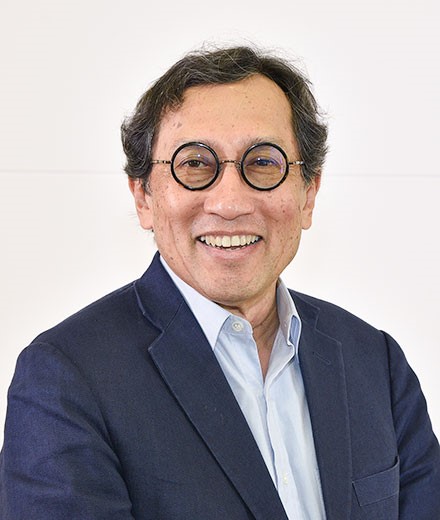
Bilahari Kausikan
Chairman, Middle East Institute, National University of Singapore
Bilahari Kausikan is currently Chairman of the Middle East Institute, an autonomous institute of the National University of Singapore. He has spent his entire career in the Ministry of Foreign Affairs. During his 37 years in the Ministry, he served in a variety of appointments at home and abroad, including as Ambassador to the Russian Federation, Permanent Representative to the UN in New York, and as the Permanent Secretary to the Ministry. Raffles Institution, the University of Singapore and Columbia University in New York all attempted to educate him.
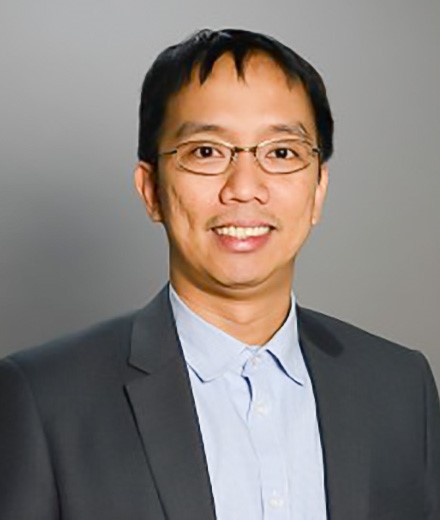
Mussolini Sinsuat Lidasan
Executive Director of the Al Qalam Institute of Islamic Identities and Dialogue in Southeast Asia based at Ateneo de Davao University
Datu Mussolini Sinsuat Lidasan is the Executive Director of the Al Qalam Institute of Islamic
Identities and Dialogue in Southeast Asia based at Ateneo de Davao University. He is also
a Member of the Parliament, Bangsamoro Transition Authority (BTA). He was a Commissioner
of the Expanded Bangsamoro Transition Commission (BTC) that drafted the
Bangsamoro Basic Law which eventually became the Bangsamoro Organic Law. Also, he
was one of the Independent Directors of the Al Amanah Islamic Investment Bank of the
Philippines (March 2016 – March 2017).
He has more than twenty years of experience as a facilitator in intra-faith and interfaith dialogue
for peace building in Mindanao (worked as a United Nations Volunteer - Community
Development Specialist from 1998 - 2003). He is a Fellow of the Konrad Adenaeur
Stiftung (KAS) and the King Abdullah bin Abdulazis Center for Interreligious and Intercultural
Dialogue (KAICIID). He is also an alumnus of the International Visitors Leadership
Programme of the US State Department focusing on Preventing and Countering Violent
Extremism (P/CVE). He is a subject matter expert in the following: prevention and countering
violent extremism; community development through Islamic micro finance; and,
Bangsamoro peace process.
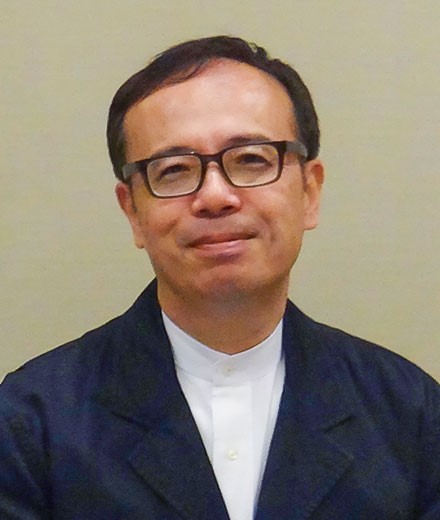
Hiroshi Yamashita
Professor Emeritus, Tohoku University
Dr. Yamashita completed his doctoral program in Tamilology at Institute for Advanced Study in Philosophy, University of Madras, after getting BA and MA degrees at Tohoku University. He is currently a professor emeritus at Tohoku University and a research fellow at Nakamura Hajime Eastern Institute and National Museum of Ethnology. He served as an associate professor at Nagoya University Graduate School of International Development, and a part-time lecturer at the University of Tokyo, Tokyo University of Foreign Studies, and many others. He was a visiting fellow at International School of Dravidian Linguistics (2000), National University of Singapore (2005), Bunditpatanasilpa Insitute (2010), etc. His publications include Philosophy of Yoga (2005, its Korean version published in 2019), Hollywoods in Asia: Indian Cinema under Globalization (2010), Philosophy of Ancient India (2014), Encyclopedia of India (2016), Rising India and its Power (2016, its Chinese version published in 2017).
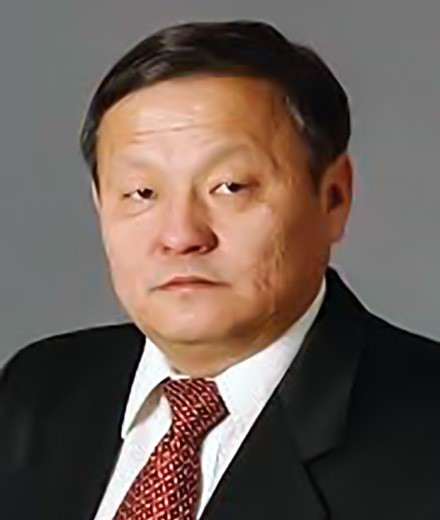
Baabar
Columnist
Baabar (Bat-Erdene Batbayar) was born in 1954. A biochemist. Educated at the Cracow University, Poland and London Imerpial College. He was involved in research work in the field of enzymology.
The founder of the Social Democratic Party and it’s first Chairman. Parliament Member and Ministry of Finance from 1996 to 2000. A free lance writer since 2000.
Currently the President of North East Asia Association, NGO that supports the North East Asian economical integration and directs its operation to provide security within the region. Issues regarding North Korea is one of the main activities of North East Asia Assiciation. Aiming to give the country a soft landing, Baabar has paid over 20 visits to North Korea. Also has been organizing food assistance for about 10 years.
Baabar is Mongolia’s most famous publicist, writer and social critic. During communism he began writing samizdat under pen-name, criticizing political critics and he was jailed for his works. At first critical of socialism from within a socialist framework, by mid 1980 he had begun to question socialism itself. He continued his writing into the 1990s, often offering highly opinionated views of Mongolian society. One of his work, which revised the Mongolian history is the Twentieth Century Mongolia, published by Cambridge University. This and many of his other works were translated to many languages.
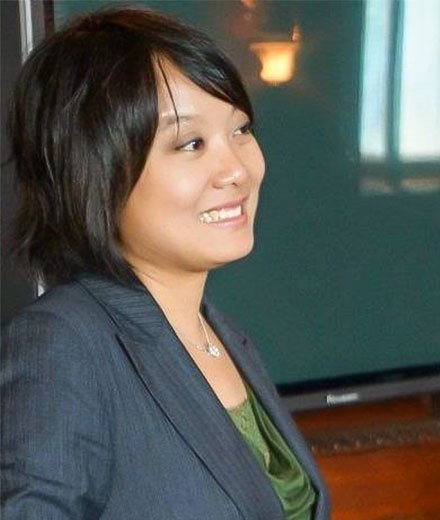
Ketty W. Chen
Vice President, Taiwan Foundation for Democracy
Dr. Ketty W. Chen is the Vice President of the Taiwan Foundation for Democracy (TFD). She is responsible for overseeing international affairs and general administration at the TFD.
Dr. Chen is a political scientist by training and received her doctoral degree in political science from the University of Oklahoma, specializing in comparative politics, democratization, international relations and political philosophy. Dr. Chen also holds two Master’s degrees in political science and international relations from the University of Oklahoma and dual Bachelor of Arts degrees in political science and psychology from the Southern Methodist University in Dallas, Texas. Dr. Chen’s writing has appeared in Nikkei Asia, China File and the Prospect Journal. Dr. Chen has been referenced in a number of publications and international media outlets, including the Wall Street Journal, the Associated Press, Al Jazeera, LA Times, New York Times, Financial Times, Voice of America, BBC-World, Libération and Le Monde. Her book chapters on Taiwan’s social movement in “Taiwan’s Social Movements Under Ma Ying-jeou” and “Cities Unsilenced” were published in 2017.
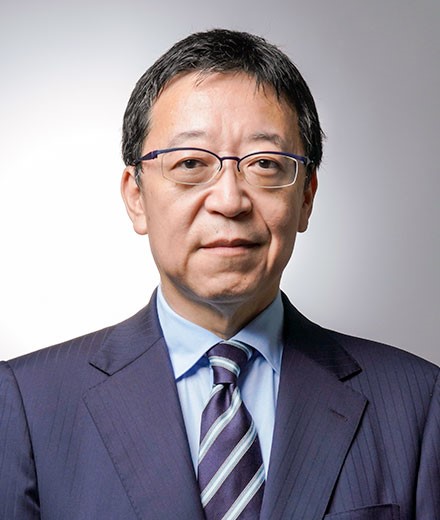
Tsuneo Watanabe
Senior Researcher, The Sasakawa Peace Foundation, Japan
In October 2016, Watanabe joined the Sasakawa Peace Foundation after serving a senior
fellow and a director of foreign & security policy research at the Tokyo Foundation since
2009. He served a senior fellow at the Mitsui Global Strategic Studies Institute in Tokyo from
2005 to 2009. In 1995, Watanabe joined Center for Strategic & International Studies (CSIS)
in Washington, D.C. He served a visiting research scholar, research associate, fellow and
senior fellow until 2005. He is currently adjunct fellow of the CSIS. His publications include
“Powers out of Control: Why the US, China & Russia are Threats to the World?” [co-authored.
in Japanese] (Kodansha, 2017), “Are the US and China Trading Places in 2025: History Tells
the Truth of the US-China Relations” [in Japanese] (PHP Research Institute, 2011). Watanabe
received his D.D.S. from Tohoku University in Japan and his M.A. in political science from the
New School for Social Research in New York.
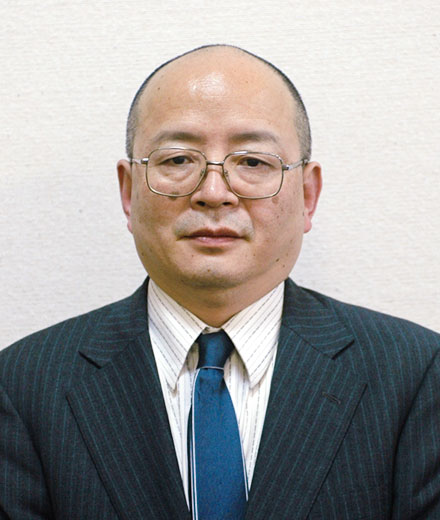
Fujita Kokan
Former President of Koyasan University
Dr. Fujita was born in Konyasan, Wakayama Prefecture. He graduated from Faculty of Arts and Letters of Tohoku University and earned PhD degree from Graduate School of Arts and Letters of Tohoku University.
After teaching as a lecturer, assistant professor, and professor, Dr. Fujita served as President of Koyasan University (April 2011-March 2017). During the three years as the president, he was engaged in the visit by the 14th Dalai Lama to Japan three times for academic exchanges between Japanese Esoteric Buddhism and Tibetan Buddhism.
Currently he is a professor emeritus of Koyasan University and chief priest of Koyasan Daienin temple. He specializes in Indian and Tibetan Buddhism.
Dr. Fujita’s publications include “How Buddhists should be and Precepts,” “Introduction for Precepts of Esoteric Buddhism,” and “The yogacarasila of Mahayana in Indo-Tibetan Buddhism.”
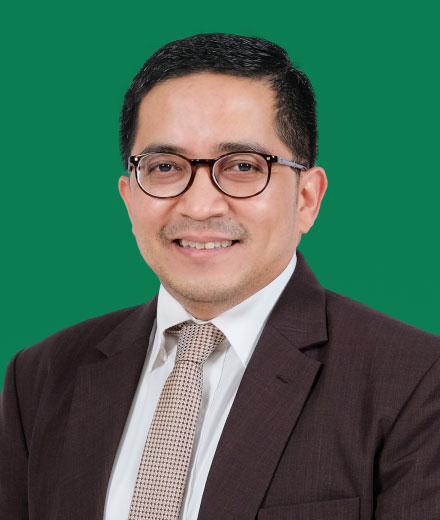
Philips J. Vermonte
CSIS Executive Director
Philips J. Vermonte joined CSIS in 2001. He received his Master of Arts degree in international studies from Department of Politics, the University of Adelaide, Australia, in 2001, funded by the AusAID scholarship. He obtained his Ph.D in Political Science at Northern Illinois University, Dekalb, USA in 2012. He is one of the founding members of the policy research network (ProREP). He is one of the expert respondents (narasumber ahli) of Metro TV and actively contributes to the Jakarta Post and Tempo Magazine.
Research Interest : political parties, election, decentralization, and Indonesian domestic politics
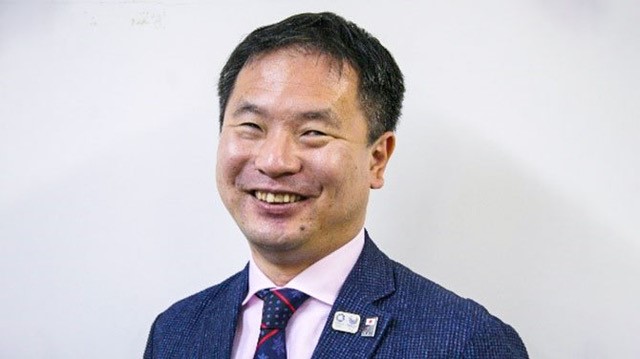
Junichi Kawai
Chairman of the Japanese Paralympic Committee
Junichi Kawai is the President of the Japanese Paralympic Committee, and the Chef de Mission of the Japanese delegation for the Tokyo 2020 Paralympic Games. He is a member of the Athletes’ Committee of the Asian Paralympic Committee since 2008. He graduated from Waseda University school of education, and finished Graduate School of Education at Waseda University in 2005. He has uveal coloboma, a condition where the tissue around his left eye is missing from his birth. He became completely blind in both eyes at age of 15. He started swimming when he was 5 years old, competed in the 6 Paralympic Games from Barcelona1992 to London2012 and won 21 medals including 5 gold medals in total. He was awarded the Paralympic Hall of Fame in 2016.
Sarah Walker
Chair of the Athletes' rights and responsibilities Declaration
Sarah Walker, New Zealand's first Olympic BMX medalist, was born in Whakatane in 1988 and grew up in nearby Kawerau. BMX made its Olympic debut at Beijing in 2008 and Walker ended up in fourth place. She won the silver medal at London Olympics in 2012.
She was elected onto the IOC Athletes’ Commission in 2016. She is also the chair of the Steering Committee for “Athletes’ Rights and Responsibilities Declaration.”
Hiroshi Hirabayashi
President, Representative Director of the Japan-India Association
Ambassador HIRABAYASHI was graduated from the University of Tokyo, Faculty of Law in 1963 and entered the foreign service at the Ministry of Foreign Affairs of Japan.
He served in Embassies in Rome, Paris, Beijing, Brussels and Washington D.C.
He also served in Tokyo in several key posts at the Ministry, including Director of Management and Coordination Division and Director General of Economic Cooperation.
He made researches at the Center for International Affairs of Harvard University as Fellow with the title of counselor of the Embassy of Japan in the United States of America.
He also served as Minister Extraordinary and Plenipotentiary (Deputy Chief of Mission) at the Embassy of Japan in Washington D.C.in 1990 and the Chief Cabinet Councilor for External Affairs at the Prime Minister's Cabinet.
Mr. HIRABAYASHI was nominated Ambassador Extraordinary and Plenipotentiary to
India in 1998 and served in New Delhi up to 2002. Then in 2002, he was transferred to Paris and served as Ambassador Extraordinary and Plenipotentiary of Japan to France, where he was awarded an Honorary Doctorate Degree from Université Lumière Lyon 2.
Ambassador HIRABAYASHI became Inspector General with the title of Ambassador
Extraordinary and Plenipotentiary in 2006. He quitted the foreign service in April, 2007 then became the President and Representative Director of the Japan-India Association.
He has assumed the following responsibilities after his retirement: Visiting Professor at Graduate School of Asia-Pacific Studies, Waseda University; Member of Council for Ministry of Land, Infrastructure, and Transport and Tourism; Vice President of the Japan Forum on International Relation; President of Japan Forum for Strategic Studies; and external board member of several companies.
